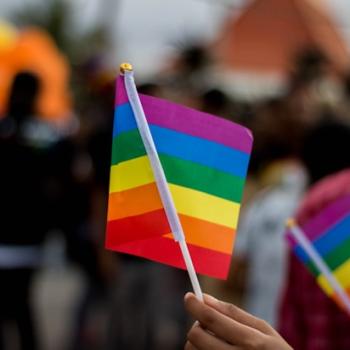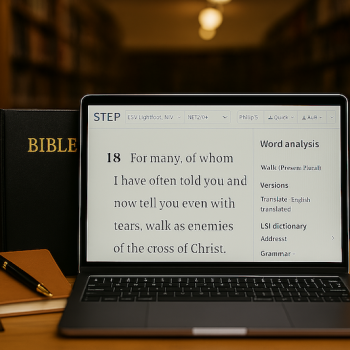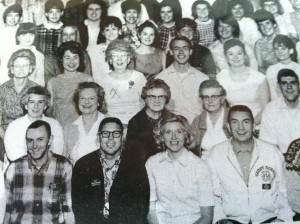I’m always intrigued by the stories of mountains in the Bible because so much that’s transformative happens among them, or at their summits. Encounters with God in the mountains are nearly always time of transition: From this….to that. We’re between two mountains when Moses says that each one represents a choice that is yet ahead: life or death. Then he shouts “choose life” to the whole nation before dying. We’re on a mountain, with Jesus, when we see him transformed into the essence of glory, God’s way of burning a hopeful future into their hearts and minds before everything hits the fan. We’re with Elijah on the mountaintop when he puts God’s reputation on the line in a sort of “Biggest Diety” reality show.
I hope to write a few thoughts about each of these mountains this summer in hopes that we’ll learn with the saints who were there, from these summit posts. The first mountain encounter though, is in some ways the richest. It’s the story of Abraham on Mt. Moriah in Genesis. I love this story because it helps me during seasons of transition like the one I’m in right now (youngest daughter and wife just graduated from college – son getting married – church I lead growing, changing, and at the cusp of a new vision for the future).
Transitions, even good transitions, are never easy. They always mean stepping into an unknown future and unknown is, by its very nature, less secure. Fear of the unknown is why some people never leave home. It’s why others remain locked in emotional prisons, where intimacy is just beyond reach. As a result, we cling to the present or the past with a tight fisted grip on what we DO have, hoping against hope to freeze frame our lives so that our health, relationships, assets, geography, theological views on everything, and o so much more, will remain the same forever.
It is, of course, like grabbing smoke. As I wrote in the last past, you can’t actually hold on to either the present or the past, any more than you can stop a river a from flowing. It is because of this, I believe, that God often asks of us a conscious letting go – asks us to literally open our hands and lift them up, empty, to the sky, as a means of symbolizing that indeed, we brought nothing into this world, and we can take nothing out of it either.
Abraham’s encounter with God on Mt. Moriah is all about empty hands because that’s where God tells Abraham to go with the son of his old age, so that he can offer that same precious son as a sacrifice to God. Of course we stumble over the notion of a offering a sacrifice in this way because it seems so cruel. What ‘god’ would ask for the body and soul of a child? How could such a god be good? If we read the story though, in its cultural setting, we come to realize that the point of the story is that the God of the Bible, in distinction to the other gods of the region, is ultimately a god of life, not death – that this God isn’t after blood at all, in distinct contrast to the other gods, the gods that kill. )That there are gods of materialism, and body image, and pleasure, and upward mobility that kill in our ‘here and now’ culture is another story entirely… for another day). God is intent on teaching us to live abundantly, and that abundance comes from living with empty hands.
Blessings become Burdens
There’s a Billy Joel song that has a line: “This is the time to remember, for it will not last forever. These are the days to hold onto, and we won’t although we’ll want to”. It’s our attempt to make some certain days last forever that keep us from embracing God’s next chapters in our lives. Our tight grip on something gives birth to fear, anxiety, restlessness, so that far from enjoying the thing to which we’re clinging, our entire paradigm of living shifts into protectionist mode. It happens to individuals, families, churches, nations. It’s tantamount to making an idol of some element of our lives because demanding that the element stay is our way of saying that life as we want it to happen, simply can’t happen with empty hands. But that’s a lie.
Empty Hands
The reality is that during seasons of transition, life as we know it can only proceed into the fulness God desires for us if we have empty hands. That’s why God leads Abraham up the mountain and asks him to sacrifice his son. God doesn’t want Abraham’s son; God wants Abraham’s empty hands. Most of you know the story, know that when Abraham lifts the knife to kill his son, God puts a stop to it. You know that, after the fact, God promises to fill Abraham’s empty hands, as God promises to “greatly bless” him.
It makes sense. God can’t put anything into hands that have a tight fisted grip on their children, or reputation, or house, or job, or savings account, or…whatever. The truth that we need to live into over and over again in our lives is this: empty hands will be filled with God’s blessing, which we can than empty again as we share those blessings, and in the emptiness of our hands, we’re given still more – it happens over and over again and will continue to happen until the day we close our fist around some particular blessing and say “mine”, say, “only when you pry it from my cold dead hand”. When that day comes you can kiss joy, and lightness, liberty and fruitfulness goodbye.
There are dynamic moves in rock climbing where you need to let go of one hold and propel yourself upward, without yet having the new hold in reach. Of course, if there is no new hold, you’ll fall. Of course, if you demand to grip the new before letting go of the old, you’ll freeze on the rock until your arms turn to jelly and – you’ll still fall. The only way to not fall? You need empty hands. It’s faith – a commitment move.
It was on my honeymoon that I read, in a tiny little devotional book, a chapter titled, “The Blessedness of Possessing Nothing”. I’ll never forget reading it, alone, up early (what’s my new wife doing in bed? doesn’t everyone rise at 5:30 or 6?) and finding that this principle of living with empty hands was new, and marvelous, like water for my soul. It would become a cornerstone of our family, freeing us to follow God into places that payed little monetarily, but were, nonetheless, God’s will for us. It would free us to say good-bye as well, to people and places we loved. It would free us to live with empty hands that would never be empty for long, because we were learning that empty hands lifted to God are hands of worship, hands that God will fill so that we can be in God’s story as people of blessing, and joy, and healing, and celebration in our broken and needy world.
What’s in your hand today? Isn’t it time for a commitment move? Isn’t it time to open that hand and give God the freedom to take, replace, add… Isn’t it time for worship?
O Giver of every gift…
I come to you this day, mindful that my hands have been holding onto __________. Here, now, I open my hands and lift them to, following in the footsteps of Christ who said that his life, teaching, authority, judgement, power were all “not his own”. Thank you for the blessedness of possessing nothing. My the grip I have on o so much be loosened in the days head, believing that higher up, there are blessings obtainable only by letting go.
Amen















